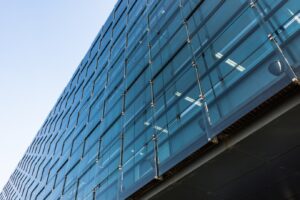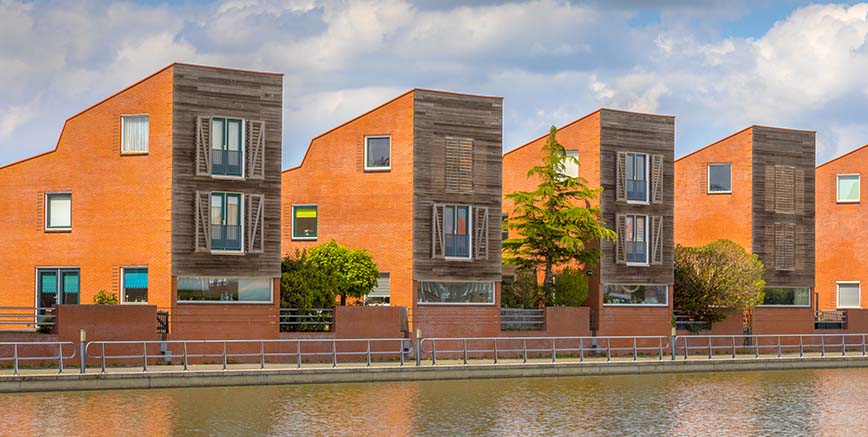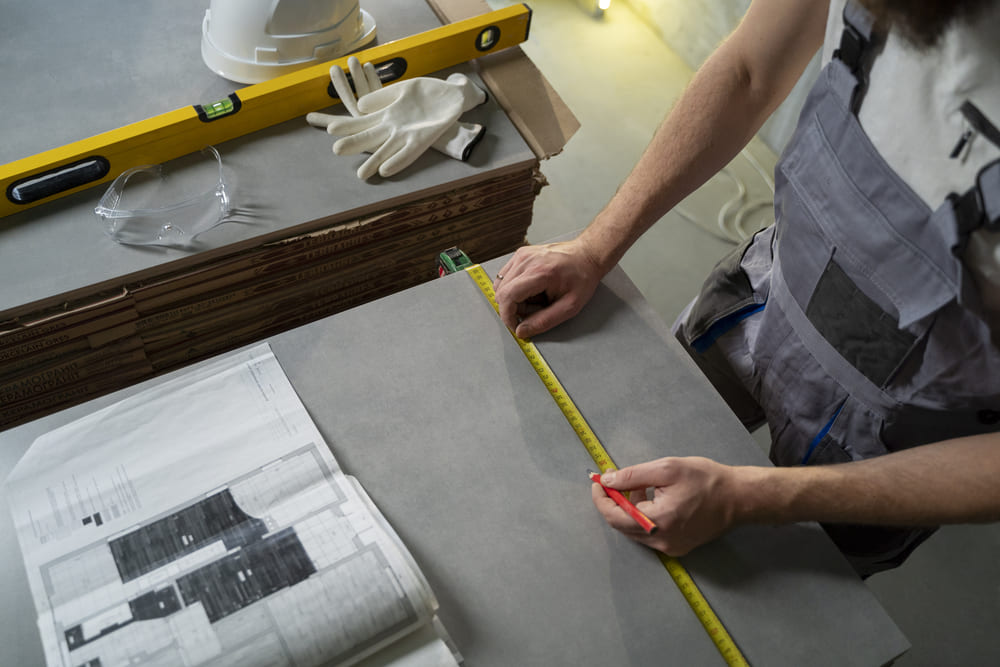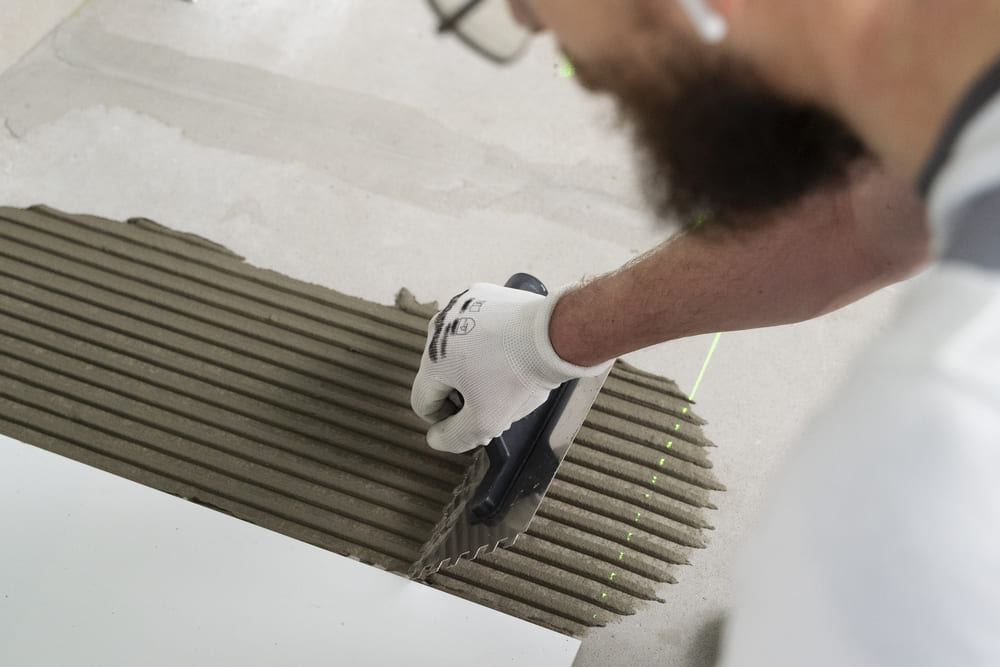
Delays in commercial construction projects can lead to significant financial losses and disruption to business operations. Understanding how to avoid delays in commercial construction is essential for maintaining timelines, controlling budgets, and delivering successful results.
Whether caused by poor planning, communication breakdowns, or unforeseen circumstances, delays can impact all stakeholders involved.
Projects that face prolonged delays often result in higher costs, as detailed in this analysis by Outbuild, which highlights the financial and operational impacts of construction delays.
At Goveias Construction, we focus on creating seamless construction processes tailored to our clients needs. Proper project management and proactive measures can help address common issues that lead to delays.
This article explores effective strategies for mitigating delays, such as detailed scheduling, clear communication, and resource optimization. Whether you’re planning a new build or managing a complex renovation, keeping your commercial construction project on track is critical for success.
1. Detailed and realistic planning to avoid delays in commercial construction
Effective planning is the cornerstone of strategies to avoid delays in commercial construction. A well-structured schedule anticipates potential challenges and efficiently allocates resources. Without a robust plan, projects are prone to setbacks that can disrupt timelines and escalate costs.
To avoid delays in commercial construction, starting with a detailed timeline is critical. Break down the project into manageable phases, assign clear deadlines, and allocate responsibilities.
Tools like Procore and Microsoft Project offer robust scheduling and task-tracking features, enabling teams to stay aligned and proactive throughout the construction process.
Moreover, anticipating logistical and regulatory hurdles is essential to avoid delays in commercial construction. For example, understanding local permitting requirements or guaranteeing material availability can prevent costly interruptions.
Projects that integrate these considerations early are less likely to face unexpected delays. A study by McKinsey & Company reveals that projects with thorough planning are 20% more likely to finish on time.
Consider this example: a commercial renovation project in New England faced significant delays due to unforeseen zoning challenges. By integrating regulatory reviews into the initial planning phase, subsequent projects avoided similar setbacks, saving time and resources.
To avoid delays in commercial construction, fostering collaboration among stakeholders during the planning phase ensures alignment and reduces the likelihood of miscommunication. This approach minimizes risks and keeps the project moving smoothly from inception to completion.
When planning your commercial construction project, focus on creating realistic timelines and leveraging tools designed to enhance productivity and foresight. By doing so, you’ll pave the way for a successful result and mitigate risks that could otherwise derail progress.
2. Choosing reliable suppliers and contractors to avoid delays in commercial construction
Selecting trustworthy suppliers and contractors is essential to avoid delays in commercial construction. Reliable partners ensure projects stay on track by delivering materials and services as promised, avoiding costly disruptions.
When choosing suppliers and contractors, start by evaluating their track record. Look for professionals with a proven history of completing similar projects on time and within budget. Reputation matters, and recommendations or reviews from previous clients can provide valuable insights into their reliability and quality of work. Choosing the wrong partner can lead to delays in commercial construction and additional costs.
Contracts are another critical aspect. Well-drafted agreements clearly outline expectations, deadlines, and deliverables, reducing the risk of misunderstandings or disputes. For instance, a contract that specifies delivery schedules for materials or subcontractor responsibilities guarantees that everyone involved aligns with the project’s timeline. Clear contracts are essential to avoid delays in commercial construction by preventing miscommunications.
It’s also important to assess the capacity and resources of your chosen partners to avoid delays in commercial construction. Make sure they have the workforce and infrastructure needed to handle your project efficiently, particularly for large-scale builds. Suppliers with established networks can often navigate unexpected issues, like material shortages, more effectively.
Here’s an essential checklist for selecting reliable suppliers and contractors:
- Experience: Verify if they have completed similar projects in scope and complexity.
- References: Request and review testimonials or case studies from past clients.
- Certifications: Ensure they meet all licensing and compliance requirements.
- Communication: Evaluate their responsiveness and willingness to collaborate.
- Capacity: Confirm they can handle the scale of your project without overextending their resources.
An example illustrates this: A company planning a retail space in New England avoided significant delays by choosing a contractor with extensive local experience and a robust supplier network. The contractor’s proactive communication and ability to anticipate potential challenges kept the project on track.
Working with the right partners to avoid delays in commercial construction, certify if timelines are met, and enhance the overall project quality. Building strong relationships with trustworthy suppliers and contractors creates a foundation for long-term success.
3. Efficient and transparent communication to avoid delays in commercial construction

Efficient and transparent communication is critical to avoid delays in commercial construction. When all stakeholders are aligned, projects are less likely to encounter misunderstandings, conflicts, or unnecessary rework.
Regular meetings should be scheduled to avoid delays in commercial construction, provide updates, address potential issues, and maintain alignment. These meetings allow contractors, suppliers, and project managers to discuss progress, anticipate challenges, and adapt plans when needed. Open communication channels will guarantee that problems are identified and resolved before escalating.
Collaboration tools like Microsoft Teams can streamline communication among teams. These platforms enable real-time updates, task assignments, and progress tracking, making it easier to keep everyone on the same page. For example, a construction company used Trello to assign tasks and track material deliveries, ensuring each team member had access to the latest information and avoiding unnecessary delays.
In addition to meetings and tools, having a single point of contact for the project can enhance clarity and reduce confusion to avoid delays in commercial construction. This individual can relay information to all parties and certify that messages are not misinterpreted or lost. Clear communication protocols, such as agreed response times and centralized documentation, further prevent delays.
Poor communication often leads to misaligned expectations, duplicate efforts, and costly delays. By prioritizing clear and efficient communication, you can mitigate these risks and maintain steady project momentum.
For example, a commercial build in New England implemented weekly team meetings and used Microsoft Teams for document sharing. This approach significantly reduced miscommunications, ensured timely decisions, and kept the project on schedule.
To avoid delays in commercial construction, fostering an environment where communication is prioritized and streamlined guarantees that every stakeholder is working toward the same goal. Tools and consistent practices can make a significant difference in meeting timelines and delivering successful outcomes.
4. Proactive resources management and equipment to avoid delays in commercial construction
Proactive resource and equipment management is vital to avoid delays in commercial construction. Making sure materials, labor, and equipment are available when needed reduces interruptions and keeps projects on schedule. Proper management minimizes bottlenecks and enhances efficiency, saving both time and money.
One effective strategy to avoid delays in commercial construction is accurate forecasting and inventory management. By assessing project requirements in advance, contractors can identify the necessary materials, estimate usage, and maintain a steady supply. For example, maintaining a buffer stock of essential materials like drywall and concrete ensures that work continues uninterrupted, even in the face of supplier delays.
Equally important is managing skilled teams effectively. To avoid delays in commercial construction, it’s crucial to certify that workers are adequately trained and assigned to tasks that align with their expertise. A well-organized team improves productivity and reduces errors that might otherwise lead to rework and timeline disruptions.
Consider this real-world example: In a retail project in New England, a contractor faced delays due to late material deliveries and poorly scheduled labor shifts. By implementing a proactive management system, including regular inventory checks and streamlined scheduling, subsequent projects were completed on time, avoiding similar pitfalls.
To avoid delays in commercial construction, integrating advanced tools like resource management software can significantly improve coordination. These tools provide real-time insights into material usage, equipment availability, and labor allocation, enabling contractors to respond swiftly to potential challenges.
Key practices for proactive resource management include:
- Inventory Monitoring: Regularly check stock levels and maintain backups for critical materials.
- Predictive Planning: Use historical data and project forecasts to anticipate resource needs.
- Labor Optimization: Schedule shifts to maximize team productivity while avoiding burnout.
- Equipment Maintenance: Regularly inspect and service machinery to prevent unexpected breakdowns.
By adopting these practices, contractors can promote smooth project execution. Efficient management of resources and equipment is not just a strategy but a necessity to avoid delays in commercial construction. Proactive planning builds client trust and guarantees that projects are completed efficiently and on schedule.
5. Continuous monitoring and project review to avoid delays in commercial construction
Effective monitoring and regular reviews are critical to avoid delays in commercial construction. With projects involving multiple moving parts, consistent oversight ensures that potential issues are identified early and addressed before they escalate. From timeline adjustments to budget reallocation, continuous monitoring provides the flexibility needed to keep construction projects on track.
Audits play a significant role in this process. By conducting regular inspections, teams can assess progress against predefined milestones and adjust plans accordingly. These evaluations help avoid delays in commercial construction by identifying risks such as resource shortages, design misalignment, or schedule inconsistencies. For instance, discovering a supply chain bottleneck during an audit allows immediate intervention, preventing costly downtime.
Incorporating real-time monitoring technologies significantly enhances oversight capabilities. Tools like drones and IoT sensors provide up-to-date information about site conditions, equipment usage, and work progress. These technologies reduce the likelihood of human error and speed up decision-making processes. A drone, for example, can capture high-resolution images of a construction site, enabling project managers to assess progress remotely and detect areas requiring immediate attention.
To avoid delays in commercial construction, it’s essential to combine these advanced tools with traditional practices like detailed reporting and frequent team meetings. Transparent communication promises that all stakeholders are informed about project status, aligning efforts and minimizing miscommunication.
An example of this approach is a commercial office project in Boston, where the contractor utilized IoT sensors to monitor concrete curing times and establish optimal conditions. By proactively addressing potential delays in real time, the project maintained its timeline and avoided additional costs.
Key practices for continuous monitoring include:
- Scheduled Audits: Conduct weekly or bi-weekly site reviews to track progress and adjust plans.
- Real-Time Reporting: Use software platforms to centralize updates and provide instant access to project data.
- Tech Integration: Leverage drones, IoT devices, and construction management software to enhance oversight.
- Stakeholder Alignment: Hold regular meetings to ensure everyone is updated on project developments.
The ability to monitor and review projects continuously is essential to avoid delays in commercial construction. It allows for agile responses to challenges, maintaining both efficiency and quality. By embracing technology and consistent audits, contractors can build trust with clients and ensure successful project completion.
Promoting timely success to avoid delays in commercial construction

Avoiding delays in commercial construction requires a combination of meticulous planning, reliable partnerships, efficient communication, and proactive resource management.
As highlighted, detailed planning lays the foundation for success, while choosing trustworthy suppliers and contractors ensures steady progress. Transparent communication and the use of advanced technologies further enhance project alignment, allowing teams to tackle challenges effectively. Proactive management of resources and continuous monitoring reinforce these efforts, creating a framework for seamless project execution.
To avoid delays in commercial construction, partnering with experienced professionals like Goveias Construction can make all the difference. With expertise in managing complex commercial projects, Goveias will make sure that your vision is brought to life on time and within budget.
Take the first step toward a successful project today. Visit our Contact Us page to discuss your commercial construction needs. We commit to ensuring that your next project is completed efficiently, meeting every milestone with precision and care.













